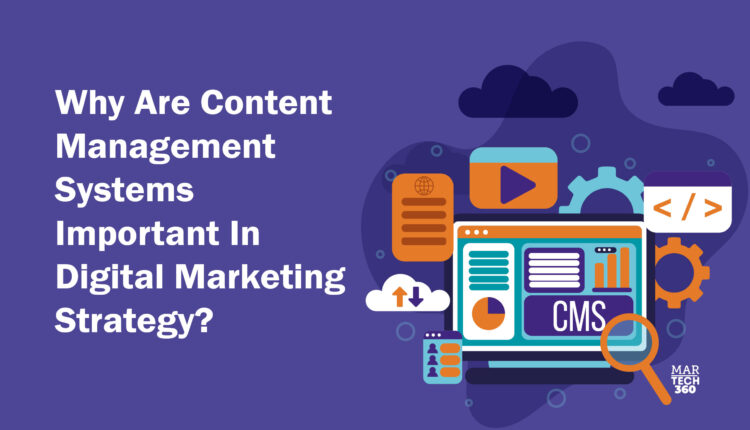If you are new to the internet, working in a digital capacity, or in the process of updating your business’s online presence, you are likely to encounter a significant amount of abbreviations and technical terminology. Content management systems, commonly referred to as CMS, are frequently discussed and have become a prevailing feature of the majority of websites in the business domain.
As an industry veteran with extensive experience in the digital realm dating back to the inception of content management, I am thrilled to provide you with comprehensive insights into our current landscape in this ever-evolving domain of business. Let’s get started!
What is CMS?
A content management system is a feature that enables administrative users to edit, maintain, produce, and manage their own content without having to dive into the code or hire a developer to do it for them.
Typically, admin users have a secret login page or area where they must authenticate in order to access the CMS functionality. From there, they can access a different menu or portal with options for the particular material that can be modified.
Content Management Systems (CMS) are widely used to manage external, public content. We are already familiar with several content management systems without realizing it, such as WordPress, which is a CMS. They are extremely effective at organizing digital assets for public sharing – now and in the future. Content Management Systems content typically comprises digital assets related to marketing, sales, and customer service.
W3Techs estimates that 68.9% of websites use a content management system, and Netcraft lists 1.15 billion live hostname websites.
Digital content management (DCM) is more than just a piece of software. It’s a series of automated procedures. The software you use to manage your digital content merely facilitates the efficiency of this cycle. Various models for describing the digital content management cycle have been developed by researchers and corporations. With subtle modifications, they all parallel the content lifecycle.
Benefits of CMS in Digital Marketing
 Content is a valuable asset to any organization. It makes a first impression on your company. Having structured, planned, and fresh content is one of the most difficult challenges that big businesses face. Once your site has been created, it is critical to manage and review it on a regular basis. A CMS in digital marketing enables you to review and change content as needed.
Content is a valuable asset to any organization. It makes a first impression on your company. Having structured, planned, and fresh content is one of the most difficult challenges that big businesses face. Once your site has been created, it is critical to manage and review it on a regular basis. A CMS in digital marketing enables you to review and change content as needed.
Automation is one of the advantages of using a content management system. As already established, using one of these CMS solutions allows us to distribute content across multiple platforms at the same time.
Furthermore, content can be enhanced, allowing not only for cross-publishing but also for social interaction with more static, like web content. This Click to Tweet or, indeed, Facebook Like or Share via Twitter feature allows users to become more involved in the content from a social standpoint, rather than simply reading it flat.
Some of the more sophisticated content management systems allow you to create content directly within the web-based application. Percolate is a great example of this, as it allows you to create content within the CMS itself, which is very convenient.
Finally, one of the advantages of a good Content Management Systems is that you can assign tasks to people in your organization who are also working on the same piece of content. You can hashtag users who are also logged in through the same CMS, and highlight tasks or issues for them to manage. This allows you to manage an online team that may not necessarily be in the same location together.
Having a CMS in digital marketing brings all of that content piece together, reducing the need to work in silos where someone may be on a disconnected machine and allowing you to move your team online to one initial and ongoing target-driven based content marketing system.
Choosing the Best CMS Type
 Digital content management is essential for any company that distributes content via the web, social media, or mobile apps. There are two types of CMS installations, and the installation you choose will affect how much digital content you can efficiently serve.
Digital content management is essential for any company that distributes content via the web, social media, or mobile apps. There are two types of CMS installations, and the installation you choose will affect how much digital content you can efficiently serve.
- On-premises installations are powered by servers, either on-site at the company or through a hosting vendor. The space and efficiency of these management systems are constrained by and dependent on the server software’s quality.
- Cloud-based CMS services offer amazingly fast processing, can be scaled up as needed, and are resilient to power outages and other server-room horror stories. Make sure you consider which installation will be most efficient and cost-effective for you before you decide upon a digital content management system.
Final Verdict
Content management systems (CMS) have completely transformed the management of websites and online platforms in the business domain. These systems have brought about a significant change by streamlining the entire process of content creation, organization, and publication. The utilization of a CMS allows individuals and businesses to effectively concentrate on their primary goals, all the while ensuring a captivating and interactive online presence.
If you possess knowledge in the field of business and wish to strengthen your digital presence, especially in the realm of marketing, implementing a strong CMS in digital marketing strategy can greatly augment your online endeavors and optimize the overall user experience.


Comments are closed.